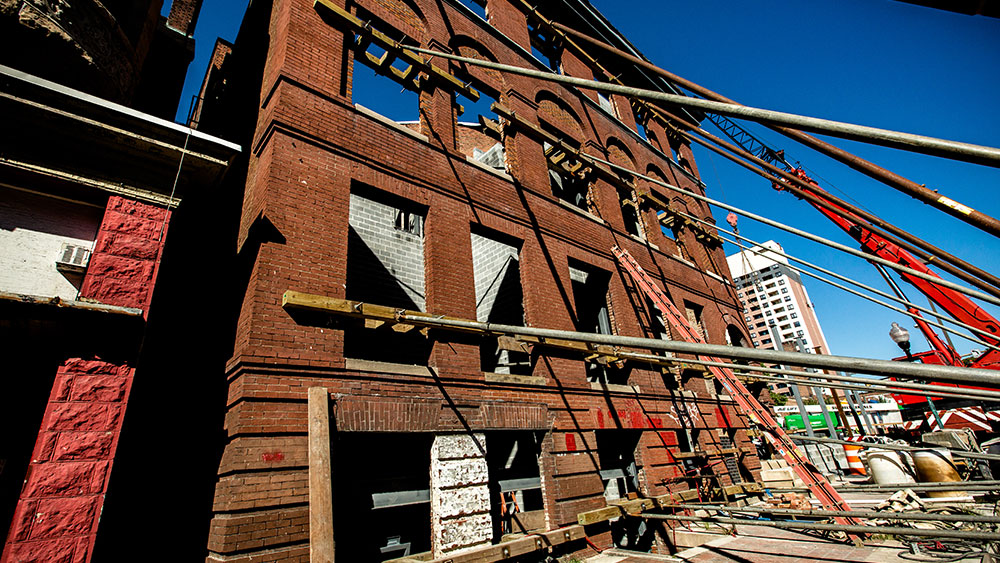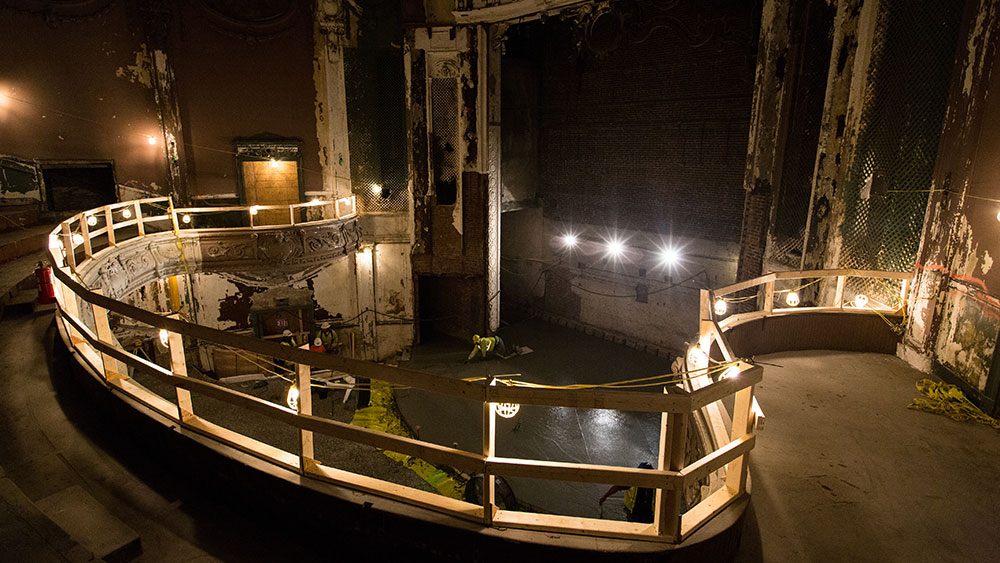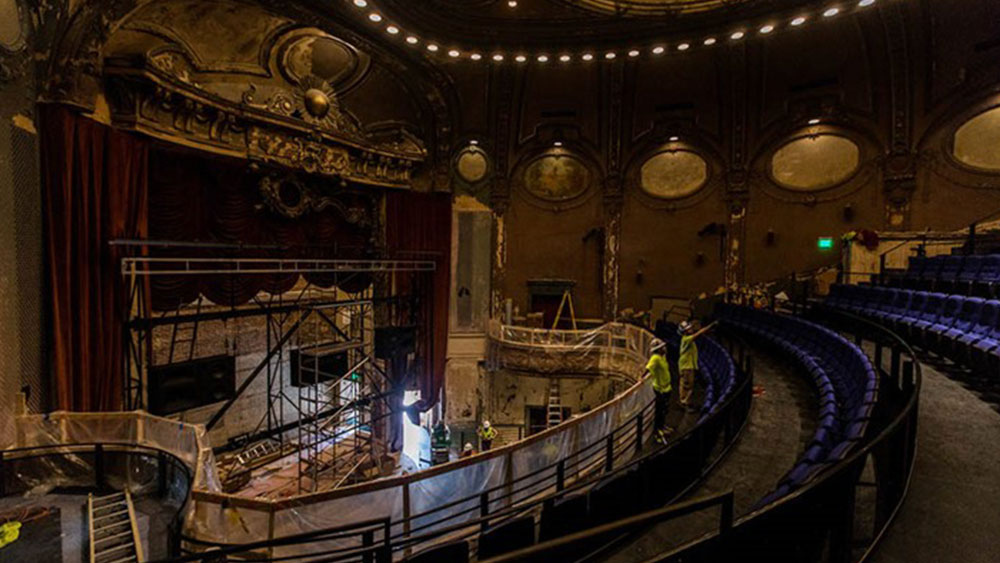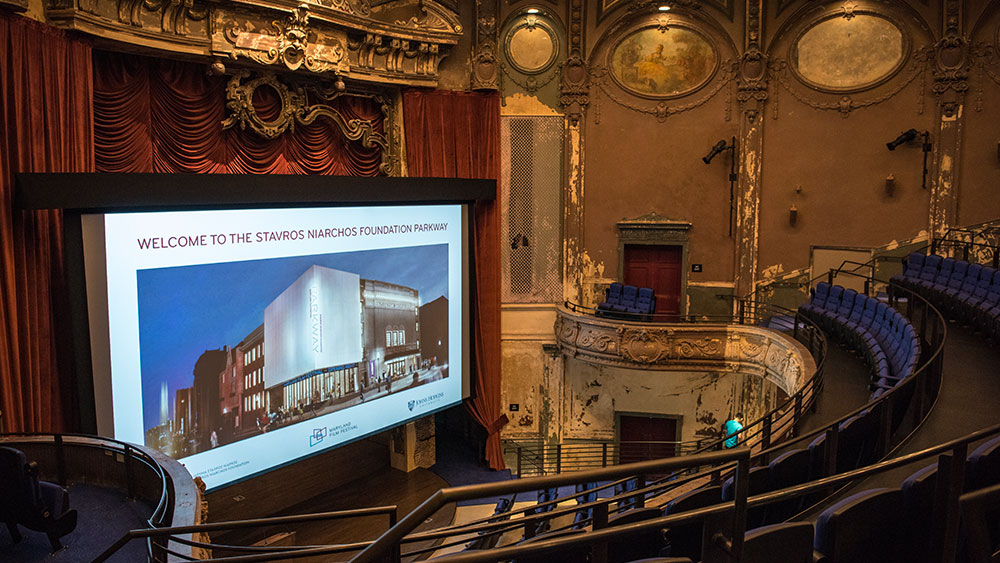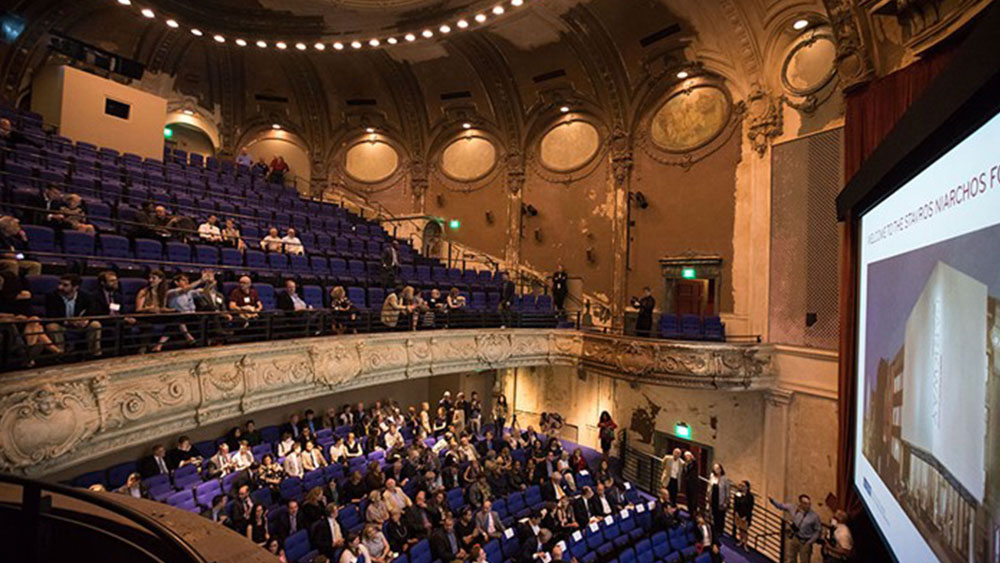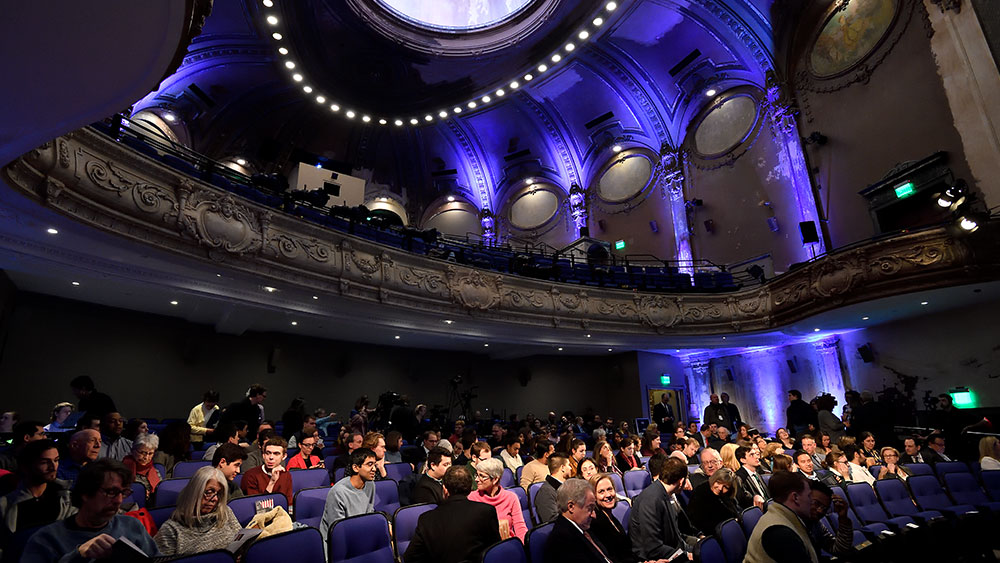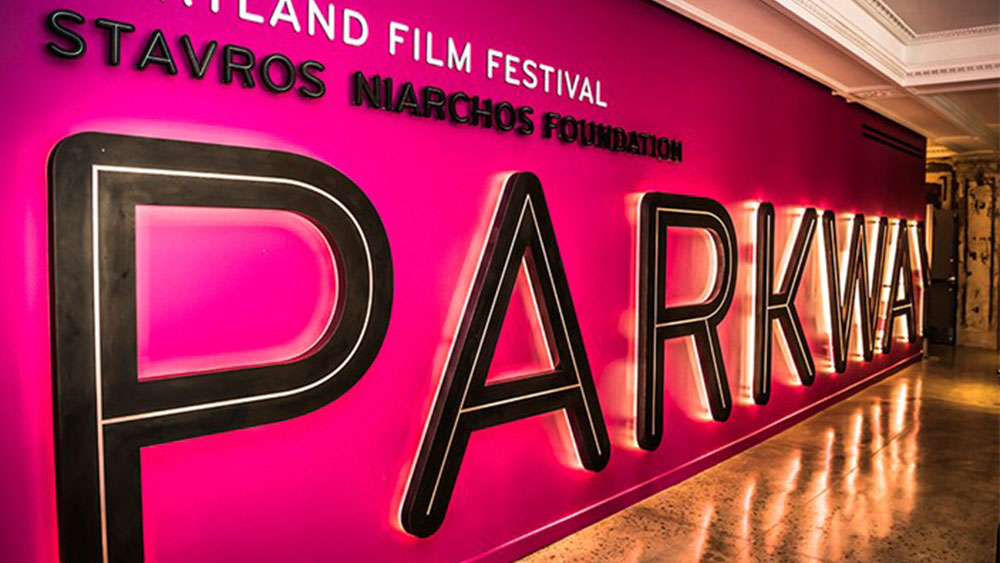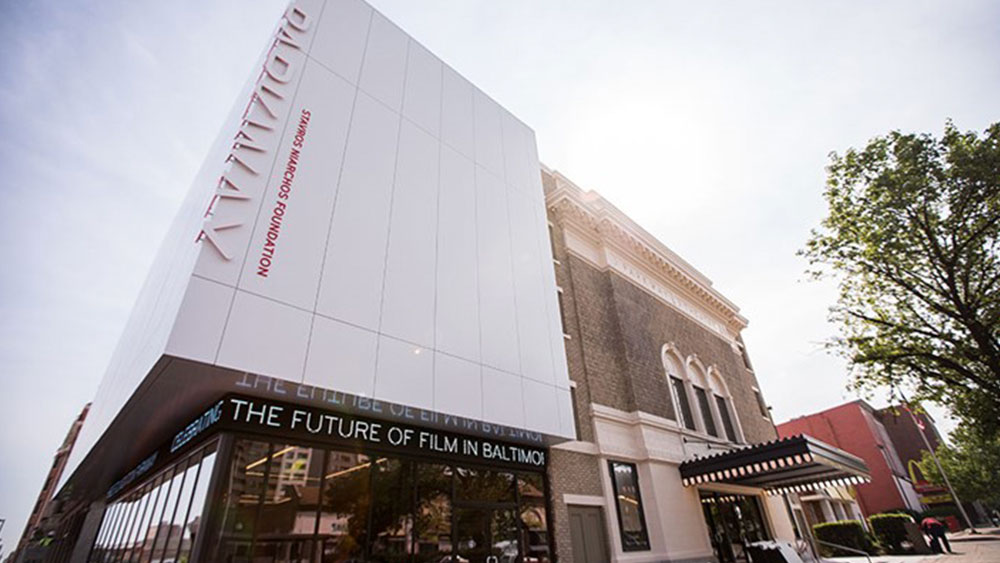
Historic Baltimore Movie Palace Has New Life as a Civic Space Offering Film for Everyone
Baltimore has been home to over 240 movie theaters, many of them opulent movie palaces like the Parkway, which first opened in 1915. After World War II, as people left Baltimore’s city center for the suburbs and increasingly favored private television viewing at home, its downtown districts and their movie theaters suffered. The Parkway finally ceased operation as a theater in 1978, and fell into disrepair in the decades that followed.
In a new era that senses a need to invert those post-war trends—to find ways for people to come together in vibrant civic spaces, choose shared media experiences, and engage with one another around ideas—the historic movie theaters that remain present an opportunity.
In 2017, a refurbished Parkway reopened as the Stavros Niarchos Foundation (SNF) Parkway Theatre, a home for the Maryland Film Festival (MdFF). Its mission: Film for Everyone. MdFF went from showing films five days a year to 365 days a year.
“This is a beautiful art form. It really is a democratizer,” says Gibson, the organization’s Executive Director. “I think it's a great opportunity for people to come together and socialize, to learn, to think about things that provoke thought, to promote new ideas.”
Restoration and renovation of the historic theater was made possible by a $5 million grant from SNF in 2014, and subsequent SNF grants supported programming and an exhibit at the National Building Museum that featured the Parkway.
The building, which is a fixture of Baltimore’s Station North Arts and Entertainment District, serves as a connective hub for a network of collaborating organizations that include Johns Hopkins University and the Maryland Institute College of Art. It is also a space Gibson wants “everybody who lives, studies, works, and plays in Baltimore” to make their own, where they can feel comfortable and a real sense of belonging.
When the pandemic struck, the organization sought to find a way to keep serving the same role under radically altered conditions.
“We had to really take a look at: How do we help our community fight social isolation? How do we help our community still be conversant with and in contact with ideas, with makers, and how do we bring people together?”
The SNF Parkway opened a virtual theater, one of the first in the country, to screen films and host events, including the Fair Housing Film Festival from Baltimore’s Office of Equity and Civil Rights. While their physical space is mostly off-limits for the time, the SNF Parkway is pioneering ways to create virtual civic spaces around film.
“We also have a new project called Baltimore Chronicles, which is helping young people to create and showcase diaristic videos of these COVID times,” says Gibson. “We're going to be showcasing those in pop-up screenings around Baltimore this summer.”
Suggested reading:
Flickering Treasures by Amy Davis
